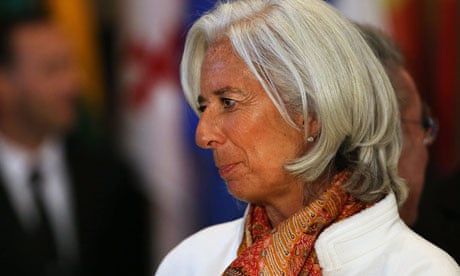Shares in New York fell sharply on Thursday after the US Treasury warned that the budget fight between Republicans and Democrats in Washington risked plunging the world's biggest economy into its worst slump since the Great Depression.
President Barack Obama turned up the pressure on Republicans on Capitol Hill after the Treasury and the International Monetary Fund joined senior Wall Street figures in urging a deal well ahead of the deadline for raising America's debt ceiling on 17 October.
"A default would be unprecedented and has the potential to be catastrophic," the Treasury reported.
"Credit markets could freeze, the value of the dollar could plummet, US interest rates could skyrocket, the negative spillovers could reverberate around the world, and there might be a financial crisis and recession that could echo the events of 2008 or worse."
The recession of five years ago was the most severe the US has suffered and the economy has recovered only slowly from the damage caused by the financial crash. A health check of the service sector showed a marked slowdown in activity even before large parts of the federal government were shut down as a result of the failure to agree a budget deal.
Obama accused the Tea Party wing of the Republicans of being "extremists" who were "demanding a ransom for doing their jobs". The president added: "Congress has to pass a budget that funds our government with no partisan strings attached."
Heightened anxiety in the financial markets was reflected in an early 170 point fall in the Dow Jones industrial average and a rise in interest rates for one-month US Treasury bonds.
Christine Lagarde, the IMF's managing director, urged America's politicians to settle their differences before the dispute harmed the entire global economy.
Speaking ahead of the fund's annual meeting in Washington next week, Lagarde said it was "mission critical" that Democrats and Republicans raise the US debt ceiling before the 17 October deadline. Lagarde said the dispute was a fresh setback for a global economy that would take at least a decade to recover from the slump of 2008-09.
"I have said many times before that the US needs to "slow down and hurry up" – by that I mean less fiscal adjustment today and more tomorrow," Lagarde said. She added that the world's biggest economy needed to put its finances in order, but favoured back-loaded measures to raise revenues and limit entitlement spending such as medicare that did not jeopardise short-term growth.
"In the midst of this fiscal challenge, the ongoing political uncertainty over the budget and the debt ceiling does not help. The government shutdown is bad enough, but failure to raise the debt ceiling would be far worse, and could very seriously damage not only the US economy, but the entire global economy.
"So it is 'mission-critical' that this be resolved as soon as possible."
Mario Draghi, the president of the European Central Bank, has also warned of the risks from a protracted federal shutdown.
Lagarde's speech followed an appeal by senior figures on Wall Street for a budget to be passed in Washington. The IMF managing director said America's recovery was being held back by over-hasty budget cuts. "Households are in better shape, the housing sector is looking brighter, and the private sector engine is humming again. And yet, growth this year will still be too low – below 2% – due to too much fiscal adjustment. This should ease up next year, with growth about a percentage point higher."
Lagarde said: "We at the IMF are very familiar with the ebb and flow of economic cycles, with the shift from recession to recovery. Experience tells us that this process usually takes a year or two, or a bit longer if the situation is especially severe. The transitions I am talking about today are different. They will likely play out over the rest of the decade, if not longer."







Comments (…)
Sign in or create your Guardian account to join the discussion